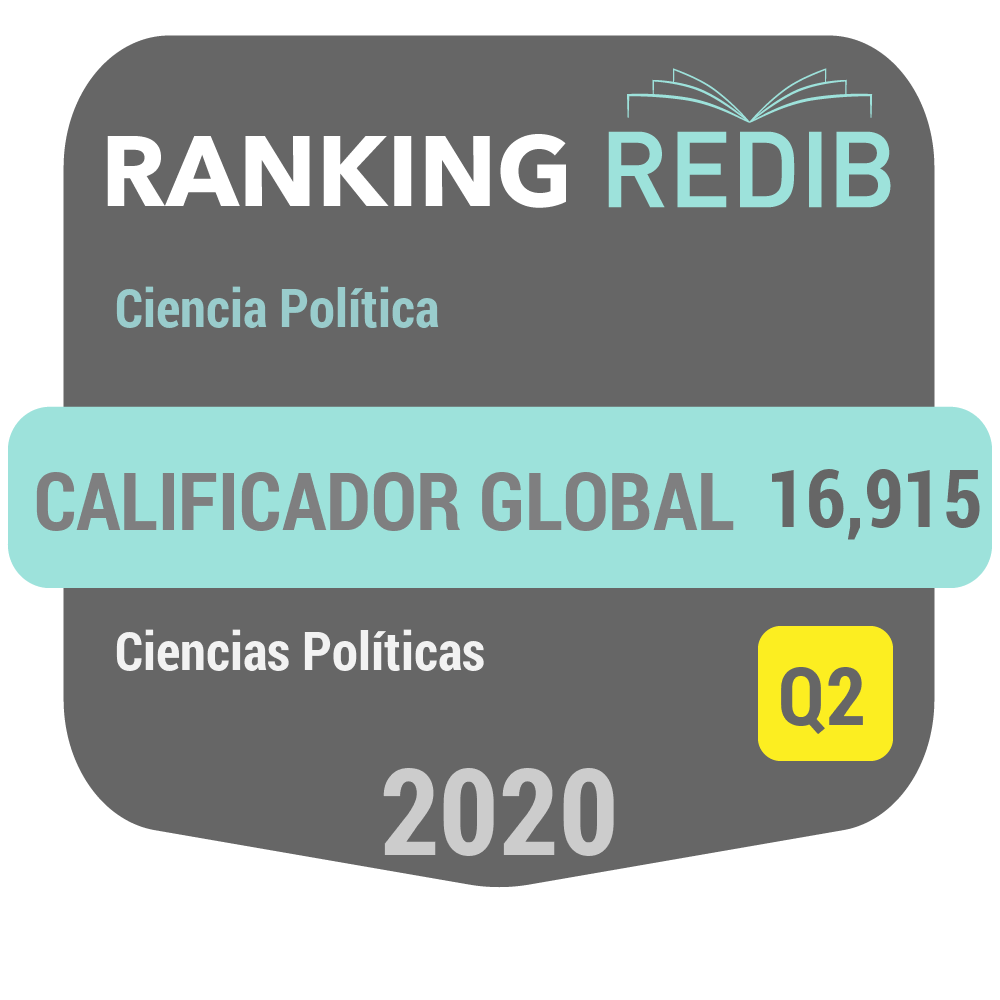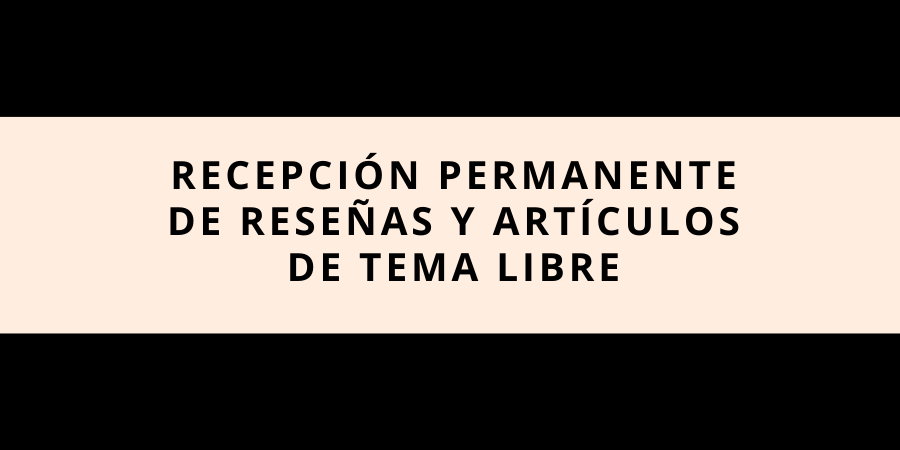Gobernanza y estructuración de acuerdos informales y recursos de uso común en el caso de pequeños productores rurales de la Sabana de Bogotá
Governance and Structuring of Informal Agreements and Common Use Resources in the Case of Small Rural Producers from Bogotá Sabana
DOI:
https://doi.org/10.15446/cp.v17n33.93760Palabras clave:
acuerdos informales, producción agrícola comunal, recursos de uso común, sistemas socioecológicos (es)communal agricultural production, informal agreements, resources of common use, socio-ecological systems (en)
Descargas
Archivos adicionales
Este artículo se fundamenta en el marco teórico de la tesis doctoral “Modelo de autogestión colectiva y productividad en el sector agrícola de pequeña escala de la Sabana de Bogotá”. Se construye un cuerpo de hipótesis que involucra: a) la sostenibilidad de los recursos de uso común; b) el impacto de estos sobre la productividad; c) los alcances de los acuerdos informales; y d) las relaciones entre estos y el capital social. Esta implementación es probada mediante un mecanismo diseñado con información de encuesta obtenida con los productores de las asociaciones en la zona. El mecanismo se valida a partir de incorporar los costos ocultos derivados del acuerdo de protección a las fuentes hídricas, en este caso cuatro ríos, y los costos factoriales correspondientes. El resultado se prueba mediante componentes principales y se obtiene que los datos usados en el modelo tienen una confiabilidad del 82 %. Esto muestra los alcances y validez de las cuatro hipótesis propuestas y el marco teórico.
This article is based on the theoretical framework of the doctoral thesis “Model of collective self-management and productivity in the small-scale agricultural sector of the Sabana de Bogotá”. A body of hypotheses is constructed that involves: a) the sustainability of common use resources; b) the impact of these on productivity; c) the scope of informal agreements; and d) the relationships between these and social capital. This implementation is tested by means of a mechanism designed with survey information obtained from the producers of the associations in the area. The mechanism is validated by incorporating the hidden costs derived from the agreement to protect water sources, in this case four rivers, and the corresponding factor costs. The result is tested by means of principal components and it is obtained that the data used in the model have a reliability of 82%. This shows the scope and validity of the four hypotheses proposed and the theoretical framework.
Referencias
Acosta, C., Ortega, M., Bunsen, H., Koirala, B. y Ghorbani, A. (2018). Facilitating energy transition through energy commons: an application of socio ecological systems framework for integrated community energy systems. Sustainability, 10(2), 366. https://doi.org/10.3390/su10020366
Afacan, M. O., Bó, I. y Turhan, B. (2020). Assignment maximization. https://arxiv.org/pdf/2012.01011.pdf
Afroz, S., Cramb, R. y Grunbuhel, C. (2016). Collective management of water resources in Coastal Bangladesh: formal and substantive approaches. Human Ecology, 44, 17-31. https://doi.org/10.1007/s10745-016-9809-x
Agrawal, A. (2014). Studying the commons, governing common-pool resource outcomes: Some concluding thoughts. Environmental Science & Policy, 36, 86-91. https://doi.org/10.1016/j.envsci.2013.08.012
Andersson, K., Benavides, J. y León, R. (2014). Institutional diversity and local forest governance. Environmental Science & Policy, 36, 61-72. https://doi.org/10.1016/j.envsci.2013.07.009
Añaños, M. C. (2014). La idea de los bienes comunes en el sistema internacional: ¿renacimiento o extinción? Anuario Mexicano de Derecho Internacional, 14, 153-195. http://www.scielo.org.mx/pdf/amdi/v14/v14a5.pdf DOI: https://doi.org/10.1016/S1870-4654(14)70005-4
Araral, E. (2014). Ostrom, Hardin and the commons: a critical appreciation and a revisionist view. Environmental Science & Policy, 36, 11-23. https://doi.org/10.1016/j.envsci.2013.07.011
Arrow, K. (1994). Elección social y los valores individuales. Madrid: Planeta-Agostini.
Axelrod, R. (1986). La evolución de la cooperación – el dilema del prisionero y la teoría de juegos. Madrid: Alianza.
Baldassarri, D. (2015). Cooperative networks: altruism, group solidarity, reciprocity, and sanctioning in Ugandan producer organizations. American Journal of Sociology, 121(2), 355-395. https://doi.org/10.1086/682418
Baldwin, K. y Mvukiyehe, E. (2015). Elections and collective action: evidence from changes in traditional institutions in Liberia. World Politics, 67(4), 690-725. https://doi.org/10.1017/S0043887115000210
Bareille, F. y Zavalloni, M. (2020). Decentralisation of agro-environmental policy design. European Review of Agricultural Economics, 47(4), 1-29. https://doi.org/10.1093/erae/jbz049
Bashar, T. y Bramley, G. (2018). Social capital and neighbourhood cooperation: implications for development of the urban poor in LDCs. Urban Studies, 56(13), 2757-2745. https://doi.org/10.1177/0042098018797945
Beitl, C. M. (2012). Shifting policies, access, and the tragedy of enclosures in Ecuadorian mangrove fisheries: towards a political ecology of the commons. Journal of Political Ecology, 19(1). 94-113. https://doi.org/10.2458/v19i1.21719
Benavides, Ó. A. y Salamanca, A. E. (2019). Bienes de uso común e interacción estratégica: el legado de Elinor Ostrom. En A. Lara Rivero, M. Amaya Y B. Grandlgruber. Complejidad y gobierno de los bienes comunes (pp. 115-157). Ciudad de México: Universidad Autónoma Metropolitana.
Berchoux, T. y Hutton, C. W. (2019). Spatial associations between household and community livelihood capitals in rural territories: an example from the Mahanadi Delta, India. Applied Geography, 103, 98-111. https://doi.org/10.1016/j.apgeog.2019.01.002
Biró, P. y Gudmundsson, J. (2021) Complexity of finding Pareto-efficient allocations of highest welfare. European Journal of Operational Research, 2(291), 614-628. https://doi.org/10.1016/j.ejor.2020.03.018
Blok, S. N., van Buuren, M. W. y Fenger, H. J. (2020) Exclusivity of citizens’ initiatives: Fuel for collective action? Journal of Civil Society, 16(3), 243-259. https://doi.org/10.1080/17448689.2020.1794168
Bluffstone, R., Dannenberg, A., Martinsson, P., Prakash, J. y Bista, R. (2020). Cooperative behavior and common pool resources: Experimental evidence from community forest user groups in Nepal. World Development, 129. https://doi.org/10.1016/j.worlddev.2020.104889
Bodin, Ö. (2017). Collaborative environmental governance: achieving collective action in social-ecological systems. Science, 357(6352). https://doi.org/10.1126/science.aan1114
Böhling, K. y Arzberger, M. B. (2014). New modes of governance in Bavaria’s alpine forests: the ‘Mountain Forest Initiative’ at work. Forest Policy and Economics, 49. https://doi.org/10.1016/j.forpol.2014.01.004
Brando, N., Boonen, C., Cogolati, S., Hagen, R., Vanstappen, N., y Wouters, J. (2019). Governing as commons or as global public goods: Two tales of power. International Journal of the Commons, 13(1), 553-577. http://doi.org/10.18352/ijc.907
Bullini, L., De Martino, E., Rossignoli, C. y Bonomi, S. (2019). Strategic value of agricultural business networks in sustaining common goods. Sustainability, 11(21), 5986. https://doi.org/10.3390/su11215986
Camus, P. e Hidalgo, R. (2017). “Y serán desplayados”. Recorrido histórico sobre los bienes comunes, pescadores artesanales y control legal del litoral en Chile. Historia Crítica, 63(63), 97-116. https://doi.org/10.7440/histcrit63.2017.05
Camus, P., Hidalgo, R., Pérez, L. y Muñoz, E. (2017). ¡Defendamos Díchato! Bienes comunes y conflicto territorial en los espacios litorales chileno. Revista de Geografía Norte Grande, 68, 105-122. http://dx.doi.org/10.4067/S0718-34022017000300105
Carballo, D. M. y Feinman, G. M. (2016) Cooperation, collective action, and the archeology of large-scale societies. Evolutionary Anthropology, 25(6), 288-296. https://doi.org/10.1002/evan.21506
Cenker-Özek, C. I. (2017). Civic space in Turkey: a social capital approach to civil society. Turkish Studies, 18(4), 688-709. https://doi.org/10.1080/14683849.2017.1351303
Cervellini, M., Fiorini, S., Cavicchi, A., Campetella, G., Simonetti, E., Chelli, S., Canullo, R. y Gimona, A. (2017). Relationships between understory specialist species and local management practices in coppiced forests - Evidence from the Italian Apennines. Forest Ecology and Management, 385, 35-45. https://doi.org/10.1016/j.foreco.2016.11.027
Charnley, S., Kelly, E. y Fischer, P. (2020). Fostering collective action to reduce wildfire risk across property boundaries in the American West. Environmental Research Letters 15(2). https://doi.org/10.1088/1748-9326/ab639a
Chaudhuri, A. (2016). Recent advances in experimental studies of social dilemma games. Games, 7(1). https://doi.org/10.3390/g7010007
Chen, H. (2020). Institutional credibility and informal institutions: the case of extralegal land development in China. Cities, 97. https://doi.org/10.1016/j.cities.2019.102519
Coase, R. (1960). The problem of social cost. Journal of Law and Economics, 3, 1-44. https://www.jstor.org/stable/724810 DOI: https://doi.org/10.1086/466560
Cody, K., Smith, S., Cox, M. y Andersson, K. (2015). Emergence of collective action in a groundwater commons: irrigators in the San Luis Valley of Colorado. Society and Natural Resources, 28, 405-422. https://doi.org/10.1080/08941920.2014.970736
Colombatto, E. y Tavormina, V. (2016). On the role of government in promoting altruism. International Journal of Social Economics, 43(11), 1156-1170. https://doi.org/10.1108/IJSE-02-2015-0041
Cowen, N. y Delmotte, C. (2020). Ostrom, floods and mismatched property rights. International Journal of the Commons, 14(1), 583-596. http://doi.org/10.5334/ijc.983
Dannenberg, A., Löschel, A., Paolacci, G., Reif, C. y Tavoni, A. (2015). On the provision of public goods with probabilistic and ambiguous thresholds. Environmental and Resource Economics, 61(3), 365-383. https://doi.org/10.1007/s10640-014-9796-6
Delgado-Serrano, M. del M. y Ramos, P. (2015). Making Ostrom’s framework applicable to characterize social ecological systems at the local level. International Journal of the Commons, 9(2), 808-830. http://doi.org/10.18352/ijc.567
Dessart, F. J., Barreiro-Hurlé, J. y Bavel, R. van. (2019). Behavioral factors affecting the adoption of sustainable farming practices: a policyoriented review. European Review of Agricultural Economics, 46(3), 417-471. https://doi.org/10.1093/erae/jbz019
Duru, M., M’hand, F. y Therond, O. (2014). A conceptual framework for thinking now (and organising tomorrow) the agroecological transition at the level of the territory. Cahiers Agriculture, 23(2), 84-95. https://doi.org/10.1684/agr.2014.0691
Esteves, A. M. (2017). “Commoning” at the borderland: ecovillage development, socioeconomic segregation, and institutional mediation in southwestern Alentejo, Portugal. Journal of Political Ecology, 24, 968-991. https://doi.org/10.2458/v24i1.20978
Euler, J. (2018). Conceptualizing the commons: moving beyond the goods-based definition by introducing the social practices of commoning as vital determinant. Ecological Economics, 143, 10-16. https://doi.org/10.1016/j.ecolecon.2017.06.020
Fan, K. y Hui, E. C. M. (2020). Evolutionary game theory analysis for understanding the decision-making mechanisms of governments and developers on green building incentives. Building and Environment, 179. https://doi.org/10.1016/j.buildenv.2020.106972
Faysse, N., Errahj, M., Imache, A., Kemmoun, H. y Labbaci, T. (2014). Paving the way for social learning when governance is weak: supporting dialogue between stakeholders to face a groundwater crisis in Morocco. Society & Natural Resources: An International Journal, 27(3), 249-264. https://doi.org/10.1080/08941920.2013.847998
Flor, R., Maat, H., Hadi, B., Then, R., Kraus, E. y Chhay, K. (2020). How do stakeholder interactions in Cambodian rice farming villages contribute to a pesticide lockin? Crop Protection, 135. https://doi.org/10.1016/j.cropro.2019.04.023
Galafassi, G. (2018). Entre las clases y los movimientos sociales. Conflictos, acumulación y bienes comunes. Athenea Digital, 18(2), https://doi.org/10.5565/rev/athenea.1757
Gavrilets, S. (2014). Collective action and the collaborative brain. J. R. Soc. Interface, 12. https://doi.org/10.1098/rsif.2014.1067
Giest, S. y Howlett, M. (2014). Understanding the pre-conditions of commons governance: The role of network management. Environmental Science & Policy, 36, 37-47. https://doi.org/10.1016/j.envsci.2013.07.010
Gold, S., Muthuri, J. y Reiner, G. (2017). Collective action for tackling “wicked” social problems: a system dynamics model for corporate community involvement. Journal of Cleaner Production, 179, 662-673. https://doi.org/10.1016/j.jclepro.2017.11.197
González, S. y Pérez, M. (2018). Planeación de escenarios participativos en procesos degobernanza para la compensación ambiental: el caso de la central hidroeléctrica El Quimbo. Gestión y Ambiente, 21(2). https://doi.org/10.15446/ga.v21n2.73698
González-Mulet, Y., Moreno-Lemus, N. y Moreno-Lemus, E. (2016). Metodología para el análisis de estabilidad de sistemas de ecuaciones diferenciales N-Dimensionales. Revista Cubana de Informática Médica, 8(3), 515-525. http://scielo.sld.cu/pdf/rcim/v8s1/rcim04316.pdf
Graham, S. (2014). A new perspective on the trust power nexus from rural Australia. Journal of Rural Studies, 36, 87-98. https://doi.org/10.1016/j.jrurstud.2014.06.010
Griebler, C. y Avramov, M. (2014). Groundwater ecosystem services: a review. Freshwater Science, 34(1), 355-367. https://doi.org/10.1086/679903
Gross, J. y De Dreu, C. (2019). Individual solutions to shared problems create a modern tragedy of the commons. Social Sciences, 5. https://doi.org/10.1126/sciadv.aau7296
Guo, P. y Han, C. (2021). Nash equilibrium and group strategy consensus of networked evolutionary game with coupled social groups. Applied Mathematics and Computation, 409. https://doi.org/10.1016/j.amc.2021.126380
Gurney, G., Cinner, J., Sartin, J., Pressey, R., Ban, N., Marshall, N. y Prabuning, D. (2016). Participation in devolved commons management: Multiscale socioeconomic factors related to individuals’ participation in community-based management of marine protected areas in Indonesia. Environmental Science & Policy, 61, 212-220. https://doi.org/10.1016/j.envsci.2016.04.015
Hamann, M., Biggsa, R. y Reyersa, B. (2015). Mapping social-ecological systems: Identifying ‘green-loop’ and ‘red- loop’ dynamics based on characteristic bundles of ecosystem service use. Global Environmental Change, 34, 218-226. https://doi.org/10.1016/j.gloenvcha.2015.07.008
Hardin, G. (1968). The tragedy of the commons. Science, 162(3859), 1243-1248. http://www.jstor.org/stable/1724745 DOI: https://doi.org/10.1126/science.162.3859.1243
Hardin, R. (1982). Collective action. New York: The Johns Hopkins University Press.
Hinkel, J., Cox, M. E., Schlüter, M., Binder, C., y Falk, T. (2015). A diagnostic procedure for applying the social-ecological systems framework in diverse cases. Ecology and Society, 20(1). https://doi.org/10.5751/ES-07023-200132
Hribar, M. Š., Bole, D. y Urbanc, M. (2015). Public and common goods in the cultural landscape. Geografski vestnik, 87(2). https://doi.org/10.3986/GV87203
Jackson, J. E. (1991). A user’s guide to principal components. New York: Wiley. DOI: https://doi.org/10.1002/0471725331
Jackson, O. y Srivastava, S. (1996). A characterization of game theoretic solutions which lead to impossibility theorems. Review of Economic Studies, 63(1), 23-38. https://doi.org/10.2307/2298113
Jagosh, J., Bush, P. L., Salsberg, J., Macaulay, A. C., Greenhalgh, T., Wong, G., y Pluye, P. (2015). A realist evaluation of community-based participatory research: partnership synergy, trust building and related ripple effects. BMC Public Health, 15(1). https://doi.org/10.1186/S12889-015-1949-1
Jakob, M. y Edenhofer, O. (2014). Green growth, degrowth, and the commons. Oxford Review of Economic Policy, 30(3), 447-468. https://doi.org/10.1093/oxrep/gru026
Jakoby, O., Quaas, M., Müller, B., Baumgärtner, S. y Frank, K. (2014). How do individual farmers’ objectives influence the evaluation of rangeland management strategies under a variable climate? Journal of Applied Ecology, 51(2), 483-493. https://doi.org/10.1111/1365-2664.12216
Jucevicius, G. y Juceviciene, R. (2017). Cultural dilemmas and paradoxes in dynamic organizational environments. En M. Rozkwitalska, L. Sułkowski y S. Magala (Eds.), Intercultural interactions in the multicultural workplace (pp. 53-70). Gdansk: Springer. https://doi.org/10.1007/978-3-319-39771-9
Jung, H. (2020). Estimating the social value of multifunctional agriculture (MFA) with choice experiment. Agricultural Economics – Czech, 66(3), 120-128. https://doi.org/10.17221/147/2019-agricecon
Krott, M., Bader, A., Schusser, C., Devkota, R., Maryudi, A., Giessen, L. y Aurenhammer, H. (2014). Actor-centred power: the driving force in decentralized communitybased forest governance. Forest Policy and Economics, 49, 34-42. https://doi.org/10.1016/j.forpol.2013.04.012
Leenhardt, P., Teneva, L., Kininmonth, S., Darling, E., Cooley, S. y Claudet, J. (2017). Challenges, insights, and perspectives associated with using social-ecological science for marine conservation. Ocean @Coastal Management, 115, 49-60. https://doi.org/10.1016/j.ocecoaman.2015.04.018
Lejano, R. P. y Fernández de Castro, F. (2014). Norm, network, and commons: the invisible hand of community. Environmental Science & Policy, 36, 73-85. https://doi.org/10.1016/j.envsci.2013.07.012
Levidow, L. y Papaioannou, T. (2017). Which inclusive innovation? Competing normative assumptions around social justice. Innovation and Development, 8(2), 1-18. https://doi.org/10.1080/2157930X.2017.1351605
Li, W. y Tan, X. (2020). Locally Bayesian learning in networks. Theoretical Economics, 15(1), 239-278. https://doi.org/10.3982/TE3273
Lienert, J. y Burger, P. (2015). Merging capabilities and livelihoods: analyzing the use of biological resources to improve well-being. Ecology and Society, 20(2). https://doi.org/10.5751/ES-07405-200220
Lowitt, K., Levkoe, C. Z., Spring, A., Turlo, C., Williams, P. L., Bird, S., Sayers, C. y Simba, M. (2020). Empowering small-scale, community-based fisheries through a food systems framework. Marine Policy, 120. https://doi.org/10.1016/j.marpol.2020.104150
Maat, H. (2018). Group compositions: the politics of technology implemented in smallholder farming. Journal of Political Ecology, 25, 703-715. https://doi.org/10.2458/v25i1.22389
Mailath, G. J. (1998). Do people play Nash equilibrium? Lessons from evolutionary game theory. Journal of Economic Literature, 36(3), 1347-1374. http://www.jstor.org/stable/2564802
Marshall, A. (1982). Principles of economics (8.a. ed.). Philadelphia: Porcupine Press. DOI: https://doi.org/10.1007/978-1-349-15213-1
Martínez, C. I. (2021). Modelo de autogestión colectiva y productividad en el sector agrícola de pequeña escala de la Sabana de Bogotá [Inédito]. Buenos Aires: Pontificia Universidad Católica de Argentina.
Martínez, C.I. (2020). Acuerdos informales y estrategias inclusivas para la sostenibilidad. En A. Beltrán-Duque, O. J. Montilla-Gálviz, C. A. Restrepo Rivillas y A. Rodríguez-Orejuela (Comps.), Encuentro Internacional de Investigadores en Administración 2020 (pp. 2136-2152). Bogotá; Cali: Universidad Externado de Colombia; Universidad del Valle. Recuperado de https://administracion.uexternado.edu.co/encuentroInvestigacion/archivos/memorias/Memorias%20Encuentro%202020.pdf
Martínez, C.I. y Sanabria-Landazábal, N.J. (2017). Cooperación y elección electiva: estrategia para la sostenibilidad de los recursos. En N. J. Sanabria-Landazábal G. J. Rodríguez y J. E. Cervera-Cárdenas (Comps.), Competitividad, innovación y empresa (pp. 20-21). Barranquilla: Sello Editorial Uniautónoma. http://repositorio.uac.edu.co/bitstream/handle/11619/3719/Competitividad,%20Innovaci%C3%B3n%20y%20Empresa.pdf?sequence=3
Maskin, E. (2009). Diseño de mecanismos: cómo implementar objetivos sociales. Revista Asturiana de Economía, 44(21-36). https://dialnet.unirioja.es/servlet/articulo?codigo=4008580
Mazabel, D. (2014). Acción colectiva y sustentabilidad en el manejo del agua. Revista Luna Azul, 39, 1-5. https://revistasojs.ucaldas.edu.co/index.php/lunazul/article/view/1756 DOI: https://doi.org/10.17151/luaz.2014.39.1
Meilasari-Sugiana, A. (2012). Collective action and ecological sensibility for sustainable mangrove governance in Indonesia: challenges and opportunities. Journal of Political Ecology, 19(1), 184-201. https://doi.org/10.2458/v19i1.21726
Meilasari-Sugiana, A. (2018). Oil palm companies, privatization, and social dissonance: towards a socially viable and ecologically sustainable land reform in Tanah Laut Regency, South Kalimantan, Indonesia. Journal of Political Ecology, 25(1), 548-568. https://doi.org/10.2458/v25i1.22045
Mischen, P., Lipo, C. y Hunt, T. (2019). Good governance of the commons of Rapa Nui: present and past. Anthropology Datasets (74), 61-85. https://doi.org/10.4067/S0718-34022019000300061
Morillas del Moral, J. (2020). Nuevos comunes para la transformación ecosocial: el ecomercado de Granada como estudio de caso. Revesco-Revista de Estudios Cooperativos, 135, e69179. https://doi.org/10.5209/reve.69179
Morin, M. (2018). Indigenous peoples, political economists, and the tragedy of the commons. Theoretical Inquiries in Law 19(2), 559-585. https://www7.tau.ac.il/ojs/index.php/til/article/view/1582 DOI: https://doi.org/10.1515/til-2018-0028
Mourato, J. M. y Bussler, A. (2019). Community-based initiatives and the politicization gap in socio-ecological transitions: lessons from Portugal. Environmental Innovation and Societal Transitions, 33, 268-281. https://doi.org/10.1016/j.eist.2019.08.001
Musavengane, R., Tantoh, H. y Simatele, D. (2019). A comparative analysis of collaborative environmental management of natural resources in Sub-Saharan Africa: a study of Cameroon and South Africa. Journal of Asian and African Studies 54(4), 512-532. https://doi.org/10.1177/0021909618825276
Nash, J. F. (1951) Non-cooperative games. Annals of Mathematics, 54, 286-295. https://doi.org/10.2307/1969529
Newton, J. (2018) Evolutionary game theory: a renaissance. Games, 9(2), 31. https://doi.org/10.3390/g9020031
Nockur, L., Arndt, L., Keller, J. y Pfattheicher, S. (2020). Collective choice fosters sustainable resource management in the presence of asymmetric opportunities. Scientific Reports, 10(1), 10724. https://doi.org/10.1038/s41598-020-67757-1
Nunn, P. D., Aalbersberg, W., Lata, S. y Gwilliam, M. (2014). Beyond the core: community governance for climate-change adaptation in peripheral parts of Pacific Island Countries. Regional Environmental Change, 14, 221-235. https://doi.org/10.1007/s10113-013-0486
Ohseto, S. (2021). Strategy-proof and Pareto efficient allocation of indivisible goods: general impossibility domains. Int. J. Game Theory, 50, 419-432. https://doi.org/10.1007/s00182-021-00754-4
Olson, M. (1965). The Logic of Collective Action. Cambridge, Mass.: Harvard University Press.
Ostrom, E. (2000). El gobierno de los bienes comunes. La evolución de las instituciones de acción colectiva. Ciudad de México: Fondo de Cultura Económica.
Ostrom, E. (2013). Comprender la diversidad institucional. Barcelona: KRK Ediciones Pensamiento.
Pachoud, C., Delay, E., Da Re, R., Ramanzin, M. y Sturaro, E. (2020). A relational approach to studying collective action in dairy cooperatives producing mountain cheeses in the Alps: the case of the Primiero Cooperative in the Eastern Italians Alps. Sustainability, 12(11), 4596. https://doi.org/10.3390/su12114596
Park, S., Shamma, J. S. y Martins, N. C. (2018). Passivity and evolutionary game dynamics. Recuperado de https://arxiv.org/pdf/1803.07744.pdf DOI: https://doi.org/10.1109/CDC.2018.8619450
Partelow, S. (2016). Coevolving Ostrom’s social-ecological systems (SES) framework and sustainability science: four key co-benefits. Sustain Sci., 11, 399-410. https://doi.org/10.1007/s11625-015-0351-3
Peña, J., Nöldeke, G. y Lehmann, L. (2015). Evolutionary dynamics of collective action in spatially structured populations. Journal of Theoretical Biology, 382, 122-136.https://doi.org/10.1016/j.jtbi.2015.06.039
Perera, V. (2014). Engaged universals and community economies: the (human) right to water in Colombia. Antipode, 47(1), 197-215. https://doi.org/10.1111/anti.12097
Peres-Neto, P. R., Jackson, D. A. y Somers, K. M. (2005). How many principal components? Stopping rules for determining the number of non-trivial axes revisited. Computational Statistics & Data Analysis, 49(4), 974-997. https://doi.org/10.1016/j.csda.2004.06.015
Petriello, M. A. y Stronza, A. L. (2019) Campesino hunting and conservation in Latin America. Conservation Biology, 34(2), 338-353. https://doi.org/10.1111/cobi.13396
Petruzzi, P. E., Pitt, J. y Busquets, D. (2016) Inter-institutional social capital for selforganising ‘nested enterprises’. IEEE 10th International Conference on Self-Adaptive and Self-Organizing Systems (SASO), 90-99. https://doi.org/10.1109/SASO.2016.15
Pino-Romero, N., Salazar-Fernández, C. U. y López-Cruz, R. (2019). Solución uniformemente acotada y estabilidad asintótica del punto libre de infección de un modelo matemático SI con dinámica vital (crecimiento logístico) mediante las ecuaciones diferenciales con retardo. Selecciones Matemáticas, 6(1). https://doi.org/10.17268/sel.mat.2019.01.09
Programa de Naciones Unidas para el Medio Ambiente – PNUMA. (s. f.). Sobre el programa de la ONU para el medio ambiente. https://www.unep.org/es/sobre-onu medio-ambiente
Putnam, R. (2002). Solo en la bolera. Barcelona: Galaxia Gutenberg.
Qiu, J., Carpenter, S. R., Booth, E. G., Motew, M., Zipper, S. C., Kucharik, C. J., Loheide, S. P. y Turner, M. G. (2018). Understanding relationships among ecosystem services across spatial scales and over time. Environmental Research Letters, 13(5). https://doi.org/10.1088/1748-9326/aabb87
Rademacher-Estay, L. A. (2002). Cálculo y estabilidad de equilibrios de Nash y aplicaciones al modelamiento del mercado de energía eléctrica [Tesis de grado]. Facultad de Ciencias Físicas y Matemáticas, Universidad de Chile, Santiago de Chile, Chile. https://www.math.ucdavis.edu/~lrademac/memoria.pdf
Ribeiro, A. Coimbra, Andion, C. y Burigo, F. (2015). Ação coletiva e coprodução para o desenvolvimento rural: um estudo de caso do Colegiado de Desenvolvimento Territorial da Serra Catarinense. Rev. Adm. Pública, 49(1), 119-140. https://doi.org/10.1590/0034-76121685
Rigon, A. (2016). Collective or individual titles? Conflict over tenure regularisation in a Kenyan informal settlement. Urban Studies, 53(13), 2758-2778. https://doi.org/10.1177/0042098015602658
Rinaudo, J.-D., Moreau, C. y Garin, P. (2016). Social justice and groundwater allocation in agriculture: a French case study. En A. Jakeman, O. Barreteau, R. Hunt, J. Rinaudo y A. Ross. (Eds.), Integrated groundwater management. Springer, Cham. https://doi.org/10.1007/978-3-319-23576-9_11
Romano, J. y Coral, B. V. (2020). Public management, private management and collective action in the Portoviejo river basin. Visions and conflicts. Sustainability, 12(13). https://doi.org/10.3390/su12135467
Rouillard, J. y Rinaudo, J.-D. (2020). From State to user-based water allocations: an empirical analysis of institutions developed by agricultural user associations in France. Agricultural Water Management, 239(1). https://doi.org/10.1016/j.agwat.2020.106269
Saha, D. (2020). Producer collectives through self-help: sustainability of small tea growers in India. International Review of Applied Economics, 32(4), 471-490. https://doi.org/10.1080/02692171.2020.1773646
Šálka, J., Dobšinská, Z. y Hricová, Z. (2016). Factors of political power: The example of forest owners’ associations in Slovakia. Forest Policy and Economics, 68, 88-98. https://doi.org/10.1016/j.forpol.2015.05.003
Salvioli, M., Dubbeldam, J., Staňková, K. y Brown, J. S. (2021). Fisheries management as a stackelberg evolutionary game: finding an evolutionarily enlightened strategy. PLoS ONE 16(1). https://doi.org/10.1371/journal.pone.0245255
Sánchez-Zapata, M. A. (2021). Estabilidad de los puntos de equilibrio de un modelo matemático para el tratamiento de tumores con la técnica de viroterapia [Tesis de grado]. Facultad de Ciencias Matemáticas, Universidad Nacional Mayor de San Marcos, Lima, Perú. Recuperado de https://cybertesis.unmsm.edu.pe/bitstream/handle/20.500.12672/17409/Sanchez_zm.pdf?sequence=1&isAllowed=y
Sandler, T. (2015). Collective action: fifty years later. Public Choice, 164, 195-216. https://doi.org/10.1007/s11127-015-0252-0
Sanz-Hernández, A., Sanagustín-Fons, M. V. y López-Rodríguez, M. E. (2019). A transition to an innovative and inclusive bioeconomy in Aragon, Spain. Environmental Innovation and Societal Transitions 33, 301-316. https://doi.org/10.1016/j.eist.2019.08.003
Sardi, A. y Sorano, E. (2019). Dynamic performance management: an approach for managing the common goods. Sustainability, 11(22), 6435. https://doi.org/10.3390/su11226435
Scyphers, S., Picou, S. y Powers, S. (2015). Participatory conservation of coastal habitats: the importance of understanding homeowner decision making to mitigate cascading shoreline degradation. Conservation Letters, 8(1), 41-49. https://doi.org/10.1111/conl.12114
Sen, A. (1976). Elección colectiva y bienestar social. Madrid: Alianza.
Seward, P. y Xu, Y. (2019). The case for making more use of the Ostrom design principles in groundwater governance research: a South African perspective. Hydrogeoly Journal, 27, 1017-1030. https://doi.org/10.1007/s10040-018-1899-7
Shalsi, S., Ordens, C. M., Curtis, A. y Simmons, C. T. (2019). Can collective action address the “tragedy of the commons” in groundwater management? Insights from an Australian case study. Hydrogeology Journal, 27, 1017-1030. https://doi.org/10.1007/s10040-019-01986-1
Smith, H., Marrocoli, S., García, A. y Basurto, X. (2018). Hunting for common ground between wildlife governance and commons scholarship. Conservation Biology, 33(1), 9-21. https://doi.org/10.1111/cobi.13200
Soma, K. y Vatn, A. (2014). Representing the common goods: Stakeholders vs. citizens. Land Use Policy, 41, 325-333. https://doi.org/10.1016/j.landusepol.2014.06.015
Soma, K., Tatenhove, J. van y van Leeuwen, J. (2015). Marine governance in a European context: regionalization, integration, and cooperation for ecosystem-based management. Ocean & Coastal Management, 117, 4-13. https://doi.org/10.1016/j.ocecoaman.2015.03.010
Sułkowski, Ł. (2017). Social capital, trust, and intercultural interactions. En M. Rozkwitalska, Ł. Sułkowski, S. Magala (Eds.), Intercultural Interactions in the Multicultural Workplace (pp. 155-172). Gdansk: Springer. https://doi.org/10.1007/978-3-319-39771-9
Szolnoki, A. y Chen, X. (2017). Environmental feedback drives cooperation in spatial social dilemas. A Letters Journal Exploring the Frontiers of Physics, 120(5). https://doi.org/10.1209/0295-5075/120/58001
Szolnoki, A. y Perc, M. (2016). Leaders should not be conformists in evolutionary social dilemmas. Scientific Reports, 6. https://doi.org/10.1038/srep23633
Tadesse, G. y Kassie, G. T. (2017). Measuring trust and commitment in collective actions: evidence from farmers marketing organizations in rural Ethiopia. International Journal of Social Economics, 44(7), 980-996. https://doi.org/10.1108/IJSE-09-2015-0253
Tosun, J., Koos, S. y Shore, J. (2016). Co-governing common goods: Interaction patterns of private and public actors. Policy and Society, 35, 1-12. https://doi.org/10.1016/j.polsoc.2016.01.002
Trujillo-Cabrera, M. (2016). Recursos naturales de uso común: aproximaciones teóricas para su análisis. Mundo Amazónico, 7(1/2), 71-100. https://doi.org/10.15446/ma.v7.57253
Tsuyuguchi, B. B., Morgan, E. A., Rego, J. C. de Oliveira Galvão, C. (2020). Governance of alluvial aquifers and community participation: a social-ecological systems analysis of the Brazilian semi-arid region. Hydrogeology Journal, 28(34), 1-14. https://doi.org/10.1007/s10040-020-02160-8
Urquiza, A. y Cadenas, H. (2015). Sistemas socio-ecológicos: elementos teóricos y conceptuales para la discusión en torno a vulnerabilidad hídrica. L’Ordinaire des Amériques, 218. https://doi.org/10.4000/orda.1774
Uusivuori, J. (2016). Access rights to forests and private conservation: an economic analysis. Forest Science, 62(4), 355-363. https://doi.org/10.5849/forsci.15-081
Van der Waal, K. (2017). Multiple livelihoods and social relations in the South African Lowveld, 1986–2013. Review of African Political Economy, 44(152), 220-236. https://doi.org/10.1080/03056244.2017.1313727
Vasconcelos, V., Santos, F. y Pacheco, J. (2013). A bottom-up institutional approach to cooperative governance of risky commons. Nature Climate Change, 3, 797-801.https://doi.org/10.1038/nclimate1927
Villa, E. (2003). Teoría de las implementaciones y diseño de mecanismos. Bogotá: Universidad Externado de Colombia.
Villanueva, A., Gómez-Limón, J. A., Arriaza, M. y Rodríguez-Entrena, M. (2015). The design of agri-environmental schemes: Farmers’ preferences insouthern Spain. ScienceDirect Land Use Policy, 46, 142-154. https://doi.org/10.1016/j.landusepol.2015.02.009
Wilshusen, P. R. (2019). Environmental governance in motion: practices of assemblage and the political performativity of economistic conservation. World Development, 124. https://doi.org/10.1016/j.worlddev.2019.104626
Wolkmer, M. de F. Schumacher y Ferrazzo, D. (2018). O paradoxo do desenvolvimento: direito ambiental e bens comuns no capitalismo. Veredas do Direito, Belo Horizonte, 15(33), 163-189. https://doi.org/10.18623/rvd.v15i33.1269
Xu, Y. y Yao, Y. (2015). Informal institutions, collective action, and public investment in rural China. American Political Science Review, 109(2), 371-391. https://doi.org/10.1017/S0003055415000155
Yi, H., Suo, L., Shen, R., Zhang, J., Ramaswami, A. y Feiock, R. C. (2017). Regional governance and institutional collective action for environmental sustainability. Public Administration Review, 78(4), 556-566. https://doi.org/10.1111/puar.12799
Zachary, S.-T. (2017). Spontaneous collective action: peripheral mobilization during the Arab Spring. American Political Science Review, 111(2), 379-403. https://doi.org/10.1017/S0003055416000769
Zelenski, J. M., Dopko, R. L, y Capaldi, C. A. (2015). Cooperation is in our nature: nature exposure may promote cooperative and environmentally sustainable behavior. Journal of Environmental Psychology, 42, 24-31. https://doi.org/10.1016/j.jenvp.2015.01.005
Cómo citar
APA
ACM
ACS
ABNT
Chicago
Harvard
IEEE
MLA
Turabian
Vancouver
Descargar cita
Licencia
Derechos de autor 2022 Ciencia PolíticaTodos los documentos alojados en esta web están protegidos por la licencia CC Atribución-NoComercial-SinDerivadas 2.5 Colombia
ISSN En línea: 2389-7481
ISSN Impreso: 1909-230X
DOI: https://doi.org/10.15446/cp
Universidad Nacional de Colombia - Sede Bogotá - Facultad de Derecho y Ciencias Políticas y Sociales - Departamento de Ciencias Políticas


























